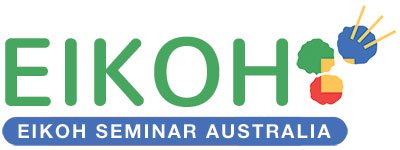Intentional Teaching – What is it and Why Does it Matter?

Intentional teaching has been an effective teaching approach for decades, but not many parents are aware of what is involved, and how it contributes to their child’s learning and development.
Millions of parents in Australia have come across “intentional teaching” in their search for the right childcare for their child, but only a few of them understand the true value that it has in promoting positive child development. If you’re wondering what intentional teaching entails, we’ve got the answer for you.
In this article, we’ll help to define what “intentional teaching” is, the important role it plays in early learning and childcare, and provide some examples of it to complete your understanding.
Table of Contents
- What is intentional teaching in childcare?
- Intentional teaching and the Early Years Learning Framework (EYLF)
- How intentional teaching contributes to early learning
- Examples of intentional teaching in childcare
- Benefits of intentional teaching
- Final thoughts
What is Intentional Teaching in Childcare?
Intentional teaching is a form of teaching approach that focuses on working with an objective in mind. It plays a key role in both learning and play sessions to boost the engagement of a child’s ideas, needs, strengths, and interests.
Educators that apply intentional teaching take on an active approach when it comes to helping children understand new concepts and ideas, guiding them towards discovering higher-order thinking skills that are essential for their development.

Intentional Teaching and the Early Years Learning Framework (EYLF)
The EYLF provides a guiding framework for childcare education in Australia, and has included intentional teaching as one of its eight core teaching practices since its inception in 2009.
Recently, in 2022, the role of intentional teaching in the EYLF was merged with play-based learning to provide more balance between adult guided and child-led play, making it an even more critical component of the framework.
How Intentional Teaching Contributes to Early Learning
In contrast to traditional teaching methods that take on a passive approach, intentional teaching allows educators to play a direct role in developing and shaping your child’s cognitive growth.
Intentional teaching involves careful and thoughtful planning, even during play sessions. Instead of random play sessions where children are left to their own devices, educators create an ideal environment for positive learning opportunities using play materials and scenarios.
Educators will actively seek out learning opportunities with children as they interact naturally with play materials or each other, whether by following their curiosity or guiding them towards problem solving.
What this means for your child is that they will be given the freedom to explore their own ideas and interests while having ample opportunities facilitated by educators towards positive learning experiences.
Examples of Intentional Teaching in Childcare
Intentional teaching is a broad approach, allowing it to be used in many forms. To help you visualise how intentional teaching is applied in childcare, here are some examples of practices that our educators adopt at Eikoh Seminar:
Asking questions: Prompting open-ended questions to help children explore and expand on their ideas and thought processes. These questions can be asked to help them along external problem solving or for internal reflection and self-discovery.
Explain and demonstrate: Using verbal instruction coupled with physical modelling actions to develop childrens’ understanding and comprehension ability.
Active listening: Showing genuine interest in children when they communicate with educators, building their confidence in communicating their own feelings and thoughts.
Guided problem solving: Providing a supportive framework for children to explore different approaches to solving challenging problems, and monitoring their progress.

Benefits of Intentional Teaching
Research has shown that intentional teaching has tangible and lasting benefits for early- years development, especially in the areas of cognitive and language ability.
The flexibility of intentional teaching as an approach means that it can be applied in targeted ways, such as to develop critical thinking ability through the use of unconventional problems. Depending on the needs and progress of your child, educators can tailor customised play sessions with intentional teaching to create opportunities for specific areas of growth.
Through intentional teaching, your child can:
- Gain a stronger awareness of self
- Learn to communicate their needs while listening to others
- Build positive relationships with peers and adults
- Explore personal interests and discover their strengths
Final Thoughts
Intentional teaching is a core component of the Early Years Learning Framework that educators make use of to provide your child with learning opportunities and guide them to make self-discoveries that contribute to their overall development.
Enrolling your child in a childcare centre that actively practices intentional teaching can help them get the most out of their play sessions and set them on the right track for consistent growth.
Our team of educators at Eikoh Seminar place intentional teaching and play-based learning at the forefront of everything we do, from curriculum planning to play sessions. Contact our friendly team today to find out more about how we incorporate intentional teaching across all our childcare centres in Normanhurst, Roseville, West Ryde, and St Ives Chase!
